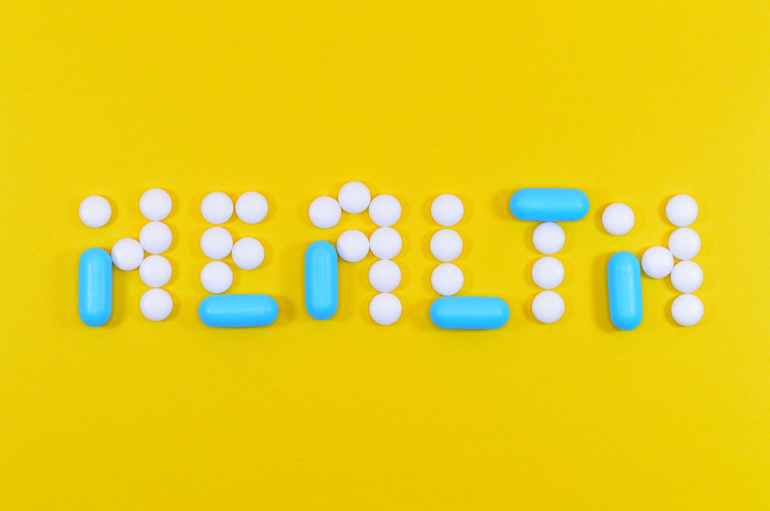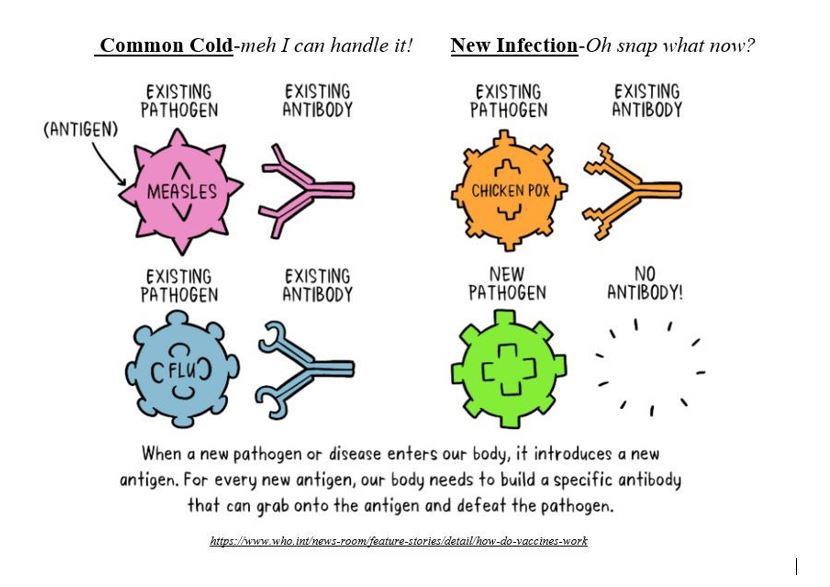
With Pfizer being able to gain FDA approval for the COVID-19 vaccine there is still speculation about why there is such commotion to attract “minorities” to take the vaccines. The legacy of the Tuskegee Experiment is the foundation of the lack of trust that Black communities have towards healthcare providers. Rightfully, the Black and Latino community has every right not to trust a government-administered vaccine. Listen up my people!, It’s severely important that as a community we increase our health literacy so that we are empowered to seek care. Today’s experimental medicine is not quite the same as it was 40 years ago. There are laws and rights to protect you in clinical trials and you can withdraw your participation at any time without any consequences.
Vaccines prevent diseases that can be dangerous, or even deadly especially for the terminally ill or individuals with underlying health conditions. Historically “minorities” have been faulted by a system that was not designed to include them. So there is no surprise why there is skepticism about the sudden interest for the Black and Latino communities to participate in the COVID-19 vaccine. On the other hand, there are health inequalities within the advancement of medicine. Quite often new drugs, vaccines, and treatments are being approved by the FDA that doesn’t quite include treatment for our genetic makeup. In other words, the discovery of new treatments may or may not work for the Black and Latino communities. “Whaaattt? Why??” Unfortunately, many research doctors do not approach “minorities” to participate in clinical trials. Which causes disparities in confirming the efficacy of a treatments or drugs that includes our ethnic genetic makeup. But, there are ways to address this issue. Making the choice the take the vaccine is entirely up to you and your decision should include consideration of your current health status. Building a relationship with a provider that you trust is critical to a healthy life. To determine if the vaccine is right for you or not you must increase your health literacy to aid that decision.
Although medical disparities and socioeconomic barriers present challenges for the Black and Latino communities to stay on top of their health, information is constantly at our fingertips. So we must be empowered to learn about new vaccines and treatment and what it takes to participate in clinical trials. This provides us with opportunities that will make the advancement of medicine inclusive. I want us to take control and be empowered in every aspect of our lives, including OurHealth. Our body is amazingly equipped to fight off infection and diseases but at times needs help with a vaccine to do so. This is why the production and use of vaccines can be useful.
To understand how vaccines work, it helps to first look at how the body fights illness. When germs, such as bacteria or viruses, invade the body, they attack and multiply. This invasion is called an infection that causes illnesses such as the common colds, flu, and yes even COVID-19. The immune system uses several tools to fight infections. Several! Yes, your body is popping already.
The components of blood contain red blood cells, for carrying oxygen to tissues and organs that help major organs function. Healthy red blood cells are necessary for your body to function and for your organs to live. While white or immune cells are vital for fighting infection. These white cells consist primarily of macrophages, B-lymphocytes, and T-lymphocytes (very “sciencey” I know but, stick with me). Think of your body fighting off diseases similar to soldiers in the Army; you have your platoon and your squad (Vets thank you for your service). The immune system responds to antigens (i.e. the identification or ID of that pathogen) by producing cells that directly attack the pathogen( a germ or virus).
Now, let’s dive more into the “sciencey” part:
White Blood Cells/Infection Fighters:
- Macrophages Are white blood cells that swallow up and digest germs, plus dead or dying cells. The macrophages leave behind parts of the invading germs called antigens (oh sh*t your doctor did mention this before huh?). The body identifies antigens as dangerous and stimulates antibodies to attack them (soldiers march!).
- B-lymphocytes Are defensive white blood cells. They produce antibodies that attack the antigens left behind by the macrophages.
- T-lymphocytes Are another type of defensive white blood cell. They attack cells in the body that have already been infected. T-lymphocytes are recognized as the “memory cell” are the cells that ask “who all over there” when your body is working hard to fight off an infection. T-lymphocytes go into attack mode remembering what helped fight off the infection before. For example, this is why some of us can have immunity to where we rarely get sick during the to the common cold or flu season. The T-lymphocytes remember the antigens that caused the illnesses before and can resist a particular disease as immunity. Your T-lymphocytes are often referred to as your T-Cells.
For Example,

Remember infections causes illnesses!
Often your body needs to produce new antibodies to fight off new pathogens. This is where vaccines come into play, to help build that immunity to those pathogens. This is why vaccines are referred to as immunizations. So it is important to understand how vaccines work.
How Vaccines Work
The COVID-19 vaccine is designed to produce an immune response by stimulating your T-lymphocytes (T-Cells) to help you build immunity. Vaccines contain weak antigens (fake diseases) that trigger an immune response within the body without actually making you sick. Triggering your immune response with a particular antigen allows your body to produce new antibodies to help build immunity to that new disease or illness. “And that’s the tea!”
In other words, “Vaccines help develop immunity by imitating an infection containing weak antigens. This type of infection seldom causes illness but causes symptoms of that illness. It also does cause the immune system to produce T-lymphocytes and antibodies (or B-lymphocytes)” that will help build immunity so that you don’t get sick.
Sometimes, after getting a vaccine, imitation infection can cause minor symptoms, such as fever. Such minor symptoms are normal and should be expected as the body builds immunity. It usually takes your body 7 days to get ready to go to “war”. Vaccines help develop immunity by imitating an infection (those antigens to trigger an immune response). This type of infection seldom causes illness, but it does cause the immune system to produce T-lymphocytes. It typically takes a few days or even a few weeks for the body to produce T-lymphocytes and B-lymphocytes (immune system) after vaccination. Therefore, a person infected with a disease before or just after vaccination could develop symptoms because the vaccine has not had enough time to provide protection.”“Girl, I got sick after the flu vaccine” Yes Queen, and this is why!
In Summary
“The first time the body encounters a germ, it can take days or weeks to make and use all the germ-fighting tools needed to get over the infection.” This is why the doctor prescribes bed rest, fluids, and Motrin for about 7 days or so. Giving your body time to fight the infection itself. For someone very ill they may not have the immune strength to do so.
“After the infection, the immune system (white blood cells) remembers what it learned about how to protect the body against that disease. The body keeps a few T-lymphocytes, that go into action quickly if the body encounters the same germ again. When the familiar antigens are detected, B-lymphocytes produce antibodies to attack them.” If your body is not capable of doing so or in other words you if you do not have a strong immune system a vaccine may be needed to help your body produce new antibodies to help fight off a new infection (i.e. COVID-19).
Once the imitation infection goes away, the body is left with a supply of “memory” T-lymphocytes, as well as B-lymphocytes that are “trained to go” and will remember how to fight that disease in the future. There has been confusion and misunderstandings about vaccines. But vaccinations are an important part of public health. Vaccines prevent the spread of contagious, dangerous, and deadly disease.
It is up to you to stay on top of your health with the aid of your doctor to understand or know if the vaccine may or may not be beneficial to you. For many vaccines can be a matter between life or death. For those who are healthy maybe not so much because your body has those strong T-lymphocytes and B-lymphocytes (immune system) that have no problem fighting off an infection.
A vaccine (or immunization) is a way to build your body’s natural immunity to a disease before you get sick. This keeps you from getting and spreading the disease. Your body builds a defense system to fight foreign germs that could make you sick or hurt you. To build up your immune system, your body must be exposed to different germs. Be sure to get fresh air always, it helps build your immune response. When your body is exposed to a germ for the first time such as COVID-19, it produces antibodies to fight it. But that takes time (about 7 days) and you usually get sick before the antibodies have built up. But once you have antibodies, they stay in your body. So the next time you’re exposed to that germ, the antibodies will attack it, and you won’t get sick. Your body is like your dream car, take care of it, go for regular check-ups, and “oil changes”. Don’t wait until the “check engine” light comes on to respond. Health is proactive and reactive. The best defense against any diseases or illness is your own body, so take care of it and keep that immune system strong. The choice is yours to take the COVID-19 vaccine just make sure that it is a well informed one!
Quick Glossary
- Antigen-Is the protein that is found on the surface of a pathogen.
- Pathogens-Are harmful microorganisms that can cause diseases in their host. Pathogens need a host to live.
- Antibody-Blood protein produced in response to and counteracting a specific antigen. Antibodies combine chemically with substances that the body recognizes as alien, such as bacteria, viruses, and foreign substances in the blood.
Need help with navigating through a Clinical Trial for the COVID-19 vaccine? Please feel free to reach out. Otherwise, stay healthy and stay happy!
Like the article?, Feel free to sign up to Beta Test our App at : https://ourhealthllc.wixsite.com/ourway
Reference Article: https://ourhealthllc.wordpress.com/2020/12/10/the-making-of-a-drug-in-america-what-it-really-takes-to-bring-a-drug-to-market/
Works Cited: https://www.who.int/news-room/feature-stories/detail/how-do-vaccines-work

